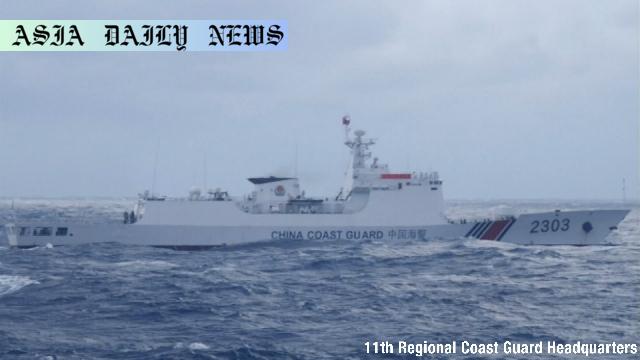Senkaku Islands: Chinese ships armed with cannons spotted for a record-breaking 355 days near Japan in 2024, raising tensions.
Chinese government ships were spotted near the Senkaku Islands for 355 days in 2024.
Chinese vessels were armed with 76mm cannons and seen consecutively for 215 days.
Japan maintains exclusive sovereignty over the Senkakus, emphasizing adherence to history and international law.
The Japan Coast Guard is bolstering patrol resources in response to heightened activity.

Record-Breaking Sightings Raise Tensions in East China Sea
The Senkaku Islands, a cluster of uninhabited islets in the East China Sea, have once again become a focal point of regional tension. Japanese officials reported a record-breaking number of sightings of Chinese government vessels in the contiguous zone surrounding the islands in 2024. This marks a notable escalation in activities, highlighting an already complex and strained geopolitical situation.
An Unprecedented Year of Activity
According to reports, Chinese ships were sighted a total of 355 days in 2024, surpassing the previous year’s record by three days. This trend signifies the highest annual activity level recorded to date. Furthermore, consecutive sightings reached 215 days, a substantial increase compared to prior years. Japanese Coast Guard officials also noted that vessels sighted from June onward were equipped with 76-millimeter cannons, adding an alarming new dimension to the activity.
Japanese Government’s Firm Stance
The Senkaku Islands are administered by Japan, which asserts that the islets are an intrinsic part of its territory under both historical and international law. While China and Taiwan lay claim to the islands, Japan has repeatedly affirmed that the sovereignty of the territory is non-negotiable. Efforts to safeguard its control have intensified amidst the record-breaking incursions.
Military Implications and Coast Guard Response
The presence of apparent weaponry on Chinese vessels has escalated the situation, prompting the Japan Coast Guard (JCG) to enhance its vigilance. JCG Commandant Seguchi Yoshio described the current state as “unstable and critical.” Japan is ramping up its coastal defenses, committing to deploy 15 additional large patrol ships to bolster the existing fleet of 91 vessels by fiscal 2029.
Regional Impacts and Broader Implications
The increased activity of Chinese vessels near the Senkakus has broader implications for the East China Sea’s geopolitical stability. The situation has not only strained Sino-Japanese relations but has also drawn the attention of other regional players and global powers. The recurring issue of contested sovereignty underscores the wider territorial disputes that exist in Asia.
Looking Forward
In the face of these challenges, the Japanese Coast Guard continues to remain steadfast, emphasizing cooperation with relevant agencies to ensure effective monitoring and response measures. This is part of a strategy aimed at balancing assertiveness with diplomacy in addressing maritime security.



Commentary
Understanding the Stakes
The recent spike in Chinese maritime activity around the Senkaku Islands has reignited concerns about the fragile state of regional stability in East Asia. The record-breaking numbers reflect more than just an administrative challenge for Japan; they signify growing assertiveness by China in territorial disputes, an issue that could have long-term repercussions. It’s crucial to approach such developments with a balanced perspective—acknowledging the sovereignty rights of nations like Japan while addressing geopolitical complexities.
The Power of Preparedness
Japan’s move to strengthen its coast guard fleet is not merely a response to numbers. It represents a strategic investment in ensuring territorial integrity. The visible presence of Chinese ships armed with 76mm cannons symbolizes an evolution in the scope of maritime assertiveness, shifting from purely administrative claims to potentially militarized surveillance. Japan should be commended for its calm and measured response, which has focused on extensive surveillance over reactionary measures.
The Role of Diplomacy
Although the Japan Coast Guard’s resilience is admirable, it is imperative for diplomatic channels to remain open. The challenge here lies in balancing sovereignty assertions with dialogue. Long-term solutions require multilateral cooperation, not just between Japan and China but also within a broader international framework, including Taiwan and other vested regional actors. Keeping communication transparent and constructive ensures that such disputes do not spiral into conflicts with broader global implications.
Final Thoughts
As tensions surrounding the Senkaku Islands continue to rise, it is a reminder of the significance of maritime security in today’s interconnected and contested global landscape. Every move in this geopolitical chess game carries consequences, not just for the immediate territorial players but for the entire region. It is a clarion call for responsible action, strategic foresight, and above all, a commitment to peace and stability in the East China Sea.